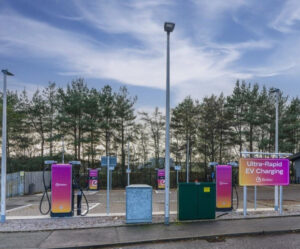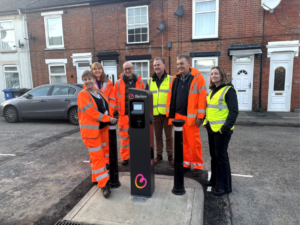A group of 34 researchers from 15 countries have come together to accelerate research into battery development.
Researchers from the University of Liverpool are part of the Battery Interface Genome Materials Acceleration Platform (BIG-MAP) and will bring together their knowledge and expertise in battery electrochemistry, alongside research using artificial intelligence (AI) and robotic platforms to design new materials to support energy technologies.
The researchers envision using robots to explore and accelerate research.
Data sharing will also facilitate the work of the researchers spread across different timezones and different partner institutions.
Professor Laurence Hardwick, who leads Liverpool’s involvement in the project, said: ‘I am delighted that the University of Liverpool is a partner in this major European initiative to design batteries with better performance, greater storage options and longer life by developing AI-assisted methods to accelerate the discovery of new materials and battery concepts.
Project leader Tejs Vegge from Denmark’s Technical University (DTU) added: ‘We have to reinvent the way we invent batteries. In concrete numbers, this means accelerating development time by 5-10 times relative to the current rate of discovery within the next 5-10 years.’
Photo Credit- University of Liverpool
















